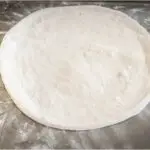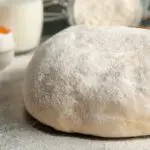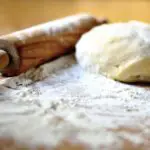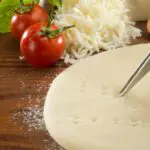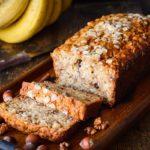Homemade bread is delicious. There really isn’t much that tastes nicer than freshly baked bread covered in butter while it is still slightly warm. But, baking bread isn’t always the easiest task.
While baking can often be enjoyable, things can sometimes go wrong, and this is when baking can become stressful.
There are all sorts of things that can go wrong when baking, but when it comes to making bread, one of the biggest issues that you will likely encounter is sticky bread dough.
Baking bread from scratch is a process, and if this is your first time doing this, you might be wondering why your bread dough is sticky.
In this guide, we’ll take a look at why your bread dough is sticky, whether this is a good or bad thing, how to fix it, and lots more. So, if you want to find out more, keep on reading!
Should Bread Dough Be Sticky?
First things first, let’s take a look at whether, or not, bread dough should be sticky. In short, no, bread dough shouldn’t be sticky. At least not once you have finished the preparation process.
All bread dough will start off a bit sticky. This is natural due to the combination of wet and dry ingredients that are used to prepare the bread dough.
However, bread dough should not be sticky once it has been prepared. In particular, you should not be left with sticky bread dough after the kneading process.
The entire point of the kneading process is to remove the stickiness from the dough, so if you are left with sticky dough after kneading, then something is probably wrong.
You might be wondering why having sticky dough is such a big deal. It is very important that your bread dough isn’t sticky after kneading as this is a sign that there is an issue with the gluten structure in your bread.
All dough will be a bit sticky and tacky, but if your dough is so sticky that it almost resembles wet dough, then something isn’t right. Let’s take a look at what causes sticky dough.
Why is My Bread Dough Sticky?
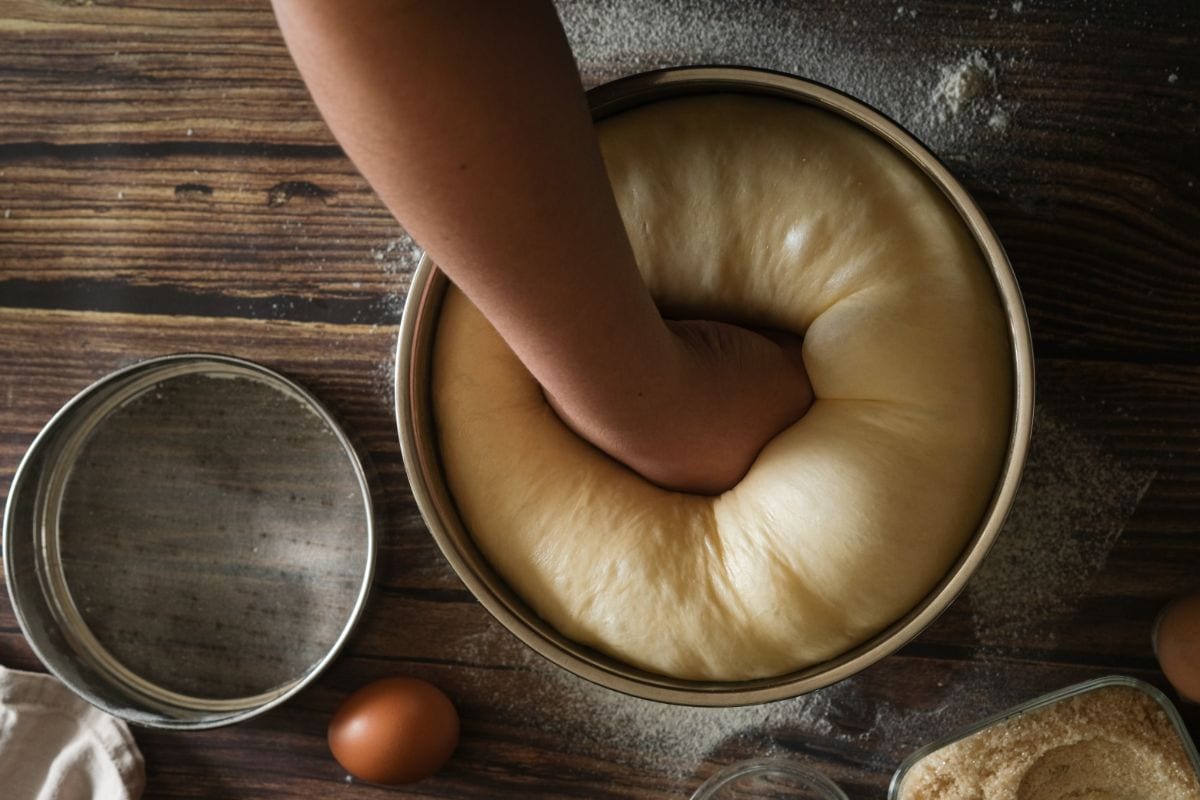
So, if you have observed that you have sticky dough, you probably want to know why. Let’s take a look at some of the main causes of sticky dough.
Too Much Water
As you might expect, one of the main causes of sticky dough is the dough itself being too wet. Wet doughs are normal for some baking recipes, but when it comes to bread, your dough shouldn’t be wet. At the most, it should be a bit sticky, but not wet.
It is very easy to add too much water to your bread dough, even when you are following a recipe. Most of the time, a bread recipe will come with a specific water measurement that should be used.
However, even when this is the case, water should be added in small amounts. If you add all the water at once, it could cause the dough to become too wet, which in turn can lead to a sticky dough.
It is also best to use warm water rather than cold water when preparing your bread dough. Cold water can cause the glutens to escape, which will lead to sticky dough.
Whereas warm water will keep the glutens in. So, you shouldn’t use cold water when preparing your own bread.
Incorrect Flour
Another common cause of sticky dough is the wrong flour being used. There are lots of different types of flour out there from white flour to whole wheat flour to all purpose flour, and this can make it difficult to know which one is right for the type of dough you are making.
The flour that you use to make your bread is very important because it is what will create the gluten structure of the bread.
If you are buying flour from the store, you might be tempted to pick up bread flour. Bread flour is specifically made with producing bread in mind, so this type of flour will usually do the job.
If you want to produce brown or wholewheat bread, then you might be considering whole wheat flour. This flour will do the job, however, it does tend to be lower in protein which leaves it more vulnerable to stickiness than if you were to use bread flour. Using too much flour can also cause sticky dough.
Over Proofing
Finally, over proofing can cause your bread dough to become sticky. The proofing process is incredibly important when it comes to bread baking as it is a key part of gluten development.
However both under proofing and over proofing can be detrimental to your bread.
To avoid sticky dough, it is very critical that you proof your bread for the perfect amount of time. If you leave your bread dough to proof for too long then the entire bread making process could be rendered futile. Likewise, if you do not proof it for long enough, the dough rise will not happen, and your bread will be flat.
How to Fix This
When you are preparing your bread dough you will usually be able to tell if it is too sticky as you have to handle bread dough when you are making it.
If you notice that your dough is too sticky when you are kneading it, simply add a little flour to the mixture and this should solve the problem. Extra flour should soak up some of the stickiness.
However, you might notice that your dough is sticky after rising. If this happens, then it is likely due to the dough being over proofed.
You will be able to confirm if this is the issue by looking at the shape of the bread as over proofed dough will be slack. Unfortunately, it is very difficult to fix dough that is sticky after rising, so the best option is to start again.
Summary
In short, if your bread dough is sticky it is likely due to too much water being used, the wrong flour being used, or the dough being over proofed. In this guide, we have taken a look at this in more detail, and how to fix sticky bread dough.
So, if you want to find out more, check out the guide above.
Thank you for reading!


